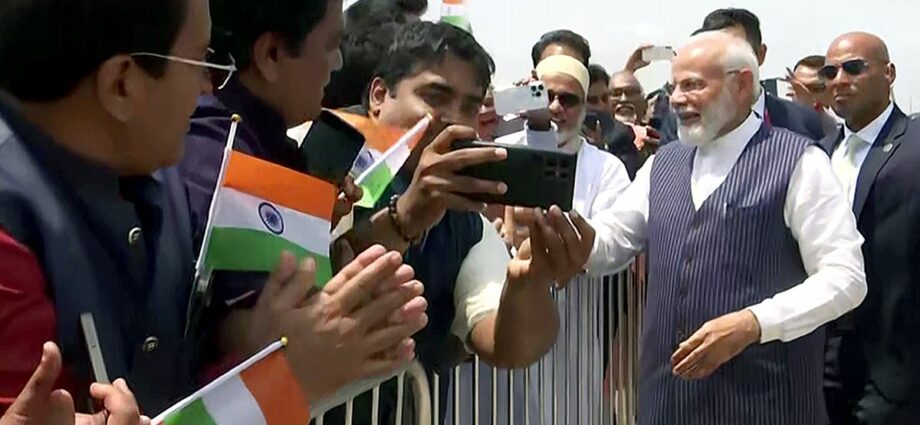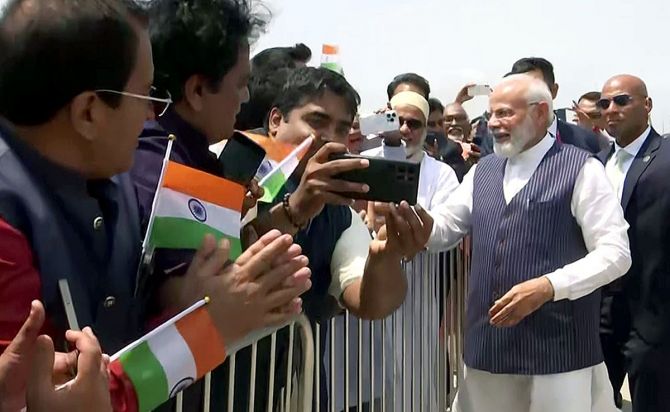Prime Minister Narendra Modi’s state visit to the US is expected to see discussion on India’s possible entry into a US-led global alliance on critical minerals, officials told Business Standard.
In June last year, the US, the European Union, and other G7 partners launched the Minerals Security Partnership to ensure that China did not further strengthen its grip on supplies of critical minerals the world over.
Various ministries, including the Ministry of Finance, have communicated to the Ministry of External Affairs to explore the possibility of India joining the partnership, officials said.
Essential for clean energy, semiconductors, and telecom technologies, demand for these minerals is projected to expand significantly in the coming decades.
“The issue will be discussed during the Prime Minister’s visit.
“Officials will explore preparatory talks on the subject.
“As newer manufacturing verticals are established in India, sourcing many critical minerals in large volumes will become necessary.
“We expect dependence on any one country to become a key challenge then,” an official said.
India wants to be part of the alliance also because it will help to give it access to investment from governments and the private sectors of developed nations for strategic opportunities across the entire value chain.
The US has said participating countries will pursue investment in mining, processing, and recycling development that maintains high environmental and social-governance standards.
India needs a carefully crafted multi-dimensional mineral policy to address the issues posed by the uneven distribution of rare earth elements, the Economic Survey 2022-23 had pointed out.
Key among the minerals in focus is lithium, required to fuel India’s energy transition target.
It is a key component in manufacturing lithium-ion (Li-ion) batteries, used in electric vehicles and battery storage.
According to the NITI Aayog, it will be crucial for meeting the ambitious national electric-vehicle (EV) adoption targets of 30 per cent for private cars, 70 per cent for commercial vehicles, and 80 per cent for two- and three-wheelers by 2030.
India meets its lithium demand exclusively through imports. Imports of Li-on batteries reached $2.8 billion in 2022-23, with more than 95 per cent of it coming from Hong Kong and China, the Ministry of Commerce data shows.
Imports more than doubled last year.
Critical for growth
The Geological Survey of India (GSI) is intensifying its exploration for critical minerals, with about one-thirds of digs now being dedicated to these.
The Centre aims to complete the auction of the 5.9 million-tonne (mt) lithium reserves discovered in Reasi district, Jammu & Kashmir, in February.
The country has nickel, cobalt, molybdenum, and heavy rare earth, but further exploration would be needed to evaluate the quantities.
Beyond these, minerals like antimony, gallium, graphite, nickel, niobium, and strontium have been flagged, as part of 43 specific minerals important for India, by the Centre for Economic and Social Progress (CSEP), a Delhi-based public policy think tank.
“Minerals such as these are critical for India.
“Many of these are required to meet green technologies, high-tech equipment, aviation, and national defence manufacturing needs,” the CSEP said in a paper published last year.
Earlier this year, India partnered Australia to deepen cooperation on mineral projects and develop secure supply chains for critical minerals.
“The Critical Minerals Investment Partnership with Australia is expected to be a playbook for future bilateral engagements in this area.
“It is important because Australia produces nearly half the world’s lithium.
“It is the second-largest producer of cobalt and the fourth-largest overall producer of rare earth elements,” another official said.
Focus on critical minerals
- Crucial for green technologies, high-tech equipment, aviation, and defence manufacturing
- Economic Survey 2022-23 had flagged need for multi-dimensional mineral policy
- India has partnered with Australia, a major producer of rare earth minerals
- At present, about 95% of lithium-ion batteries are imported from China and Hong Kong
Source: Read Full Article
-
Is It Dangerous to Work at Amazon?
-
Chuck Todd To Step Down As ‘Meet The Press’ Moderator, Kristen Welker To Succeed Him
-
US, Canada, France, Japan, UK To Collaborate On Civil Nuclear Fuels
-
Minor Fire At Pantages Theatre Prompts Cancellation Of ‘Les Miserables’ Performances
-
The Highest-Paid Doctors in America


